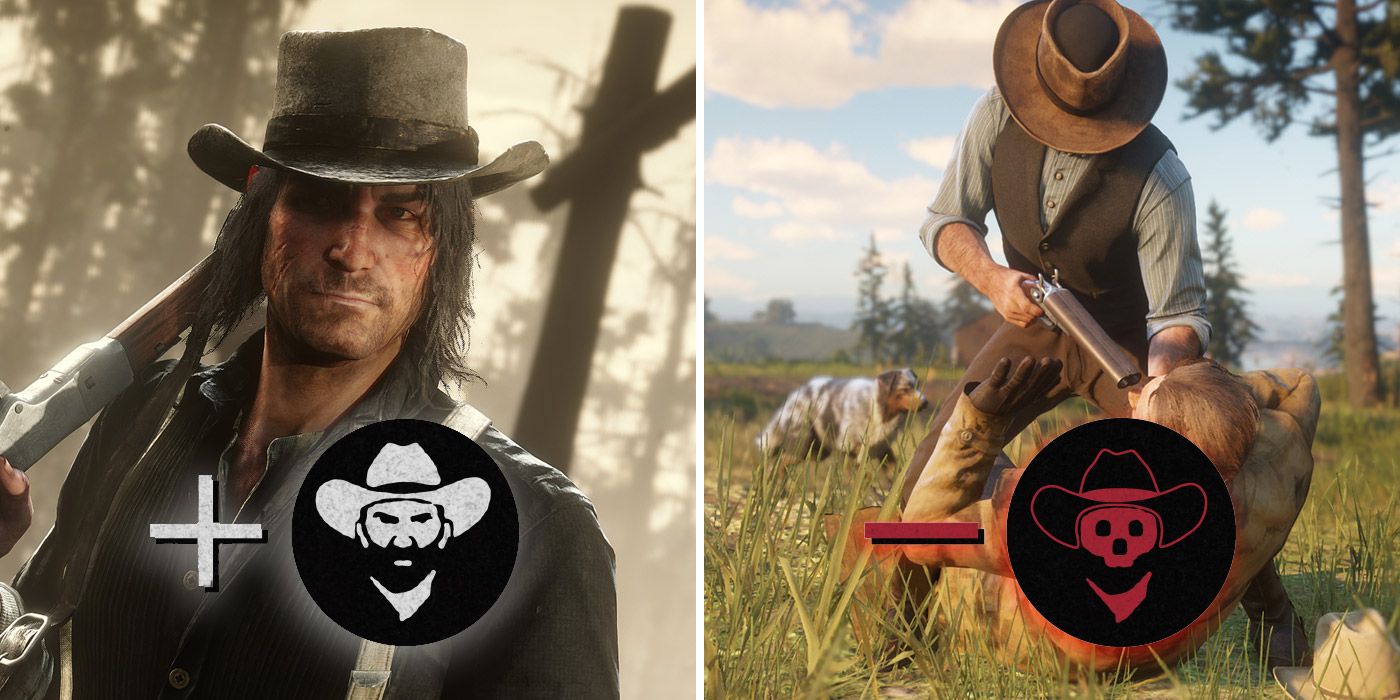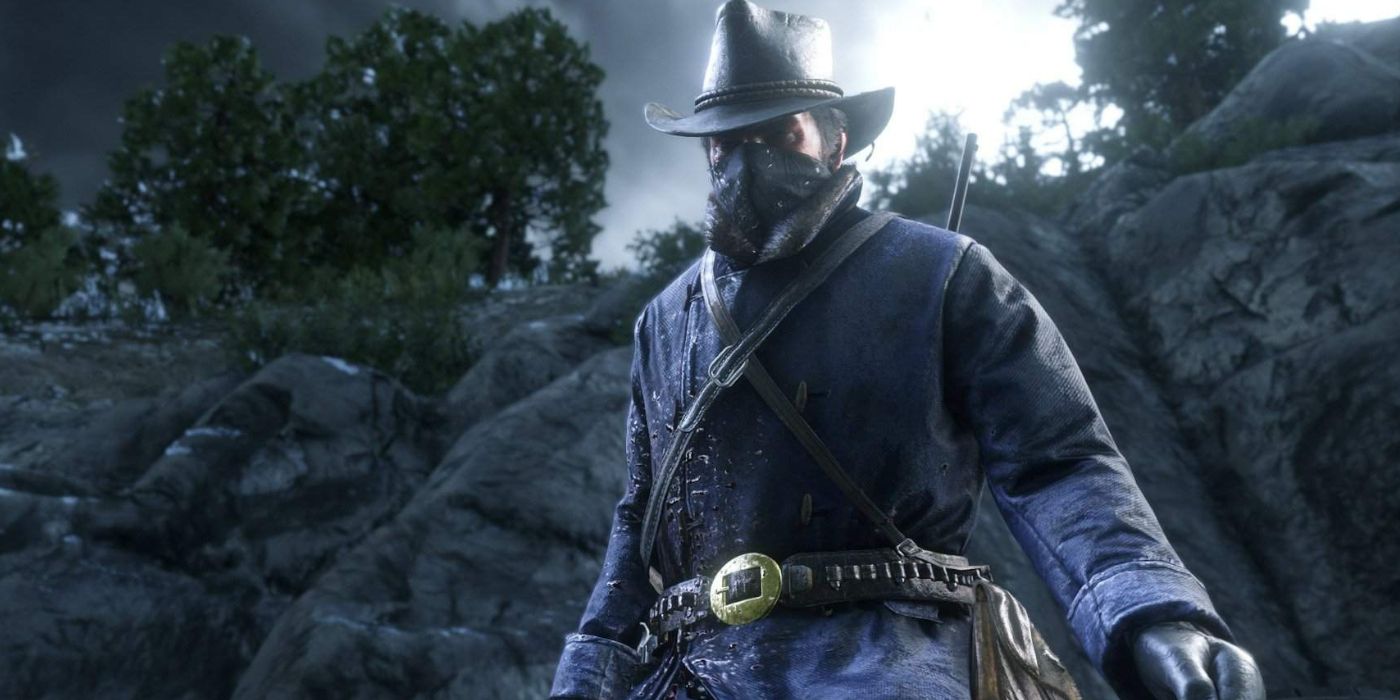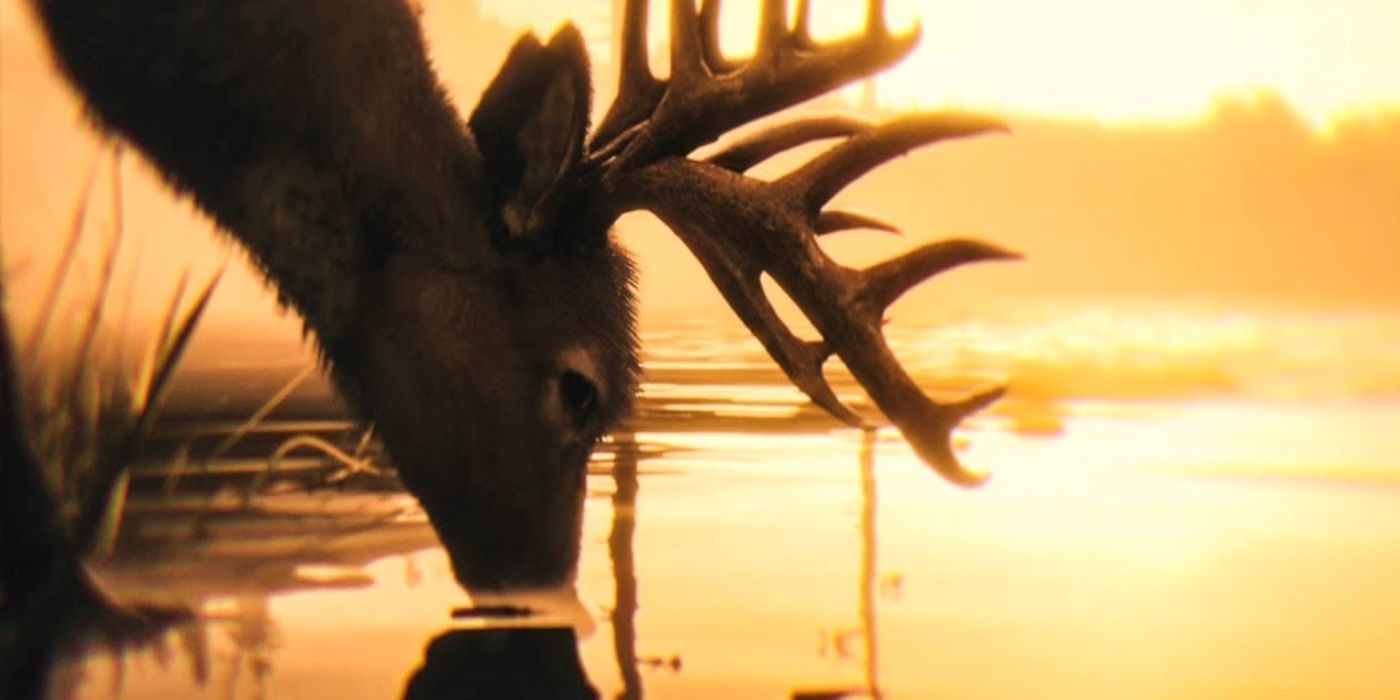Red Dead Redemption 2's Morality System Feels Redundant, But It Really Isn't

Red Dead Redemption 2 is one of the most acclaimed games of the last console generation with a world so huge fans are still discovering new mysteries to solve two years after its initial release. Yet, this also includes a relatively straightforward morality system.
Red Dead Redemption 2’s morality–the Honor system–is based on whether players commit good or evil acts, but it has little impact on the plot of the game itself. There are some different lines and new cutscenes, but ultimately, the outcome of the story is the same and Arthur’s honor is ultimately irrelevant. However, there’s a good reason for this to be the case.

Honor in Red Dead Redemption 2 can be gained or lost throughout the game. For example, a player can farm Honor in Red Dead 2 by doing camp chores, disarming opponents during duels, and paying off their bounties instead of getting into shoot-outs with the authorities. Players can lose Honor by killing civilians, stealing, and even for engaging in some mechanics which are mainstays of the genre like looting dead bodies.
The Honor system does affect a few things. Arthur’s lines in some scenes are different depending on his Honor to reflect his personality. When Arthur is telling John Marston to leave the Van Der Linde Gang, a Low Honor version of the character is blunt, telling John to “get lost” and is more cynical, saying he doesn’t see a “way outta any of this” and that Dutch’s “silly idea” of freedom doesn’t “even exist.” He’s more interested in money as well, making sure Abigail will send him his fair share of the loot when John mentions it.
A High Honor version of Arthur still tells John Marston to get lost and says he sees no way out of their situation, but does so in a kinder tone. He makes appeals to their friendship to convince John to leave. Instead of saying Dutch’s ideas don’t exist, he claims they “don’t work no more.” Overall, though, the Honor system makes little difference to the overall plot. An Arthur with very low Honor will be shot dead by Micah, but an Arthur with high honor dies of tuberculosis any way.
Mostly, the changes are aesthetic rather than changes to the plot. The way Arthur Morgan phrases his thoughts is different, but the gist of most scenes remains in-tact. There is no way for an Arthur with High Honor to redeem himself in a way that changes the major course of events in the game–but that’s the point.

Red Dead Redemption 2 deals with Arthur’s confrontation with his imminent death as he asks himself who he wants to be in his final days. The fact is that his relationship with Dutch Van Der Linde deteriorates and his ultimate demise are fixed events, but the point is that the reason Arthur’s honorable acts are honorable is because he’s trying to make right what he can, despite that fact. As Arthur says in the scene with John, even with Low Honor, “I gotta see this through, try and make some of it right.”
The degree of Arthur’s success is measured more by his internal struggle than it can be by external events. An Arthur with High Honor is more at peace during his death, while a Low Honor Arthur is robbed of his final desire for revenge against Micah. The stakes on Arthur's part are purely internal, but they are powerful stakes nonetheless.
Even telling John to leave is ironic, as players know his bloody fate from Red Dead Redemption 1, but while John seeks redemption in the first game by trying to violently alter the circumstances of his life, Arthur has a different approach. Arthur’s story is about the character trying to reconcile himself with his actions in life, many of which the player has no control over as they’ve taken place before the game. Though he always dies, players still have control over his redemption.
Red Dead Redemption 2 is available now on PC, PS4, Stadia, and Xbox One.

Post a Comment